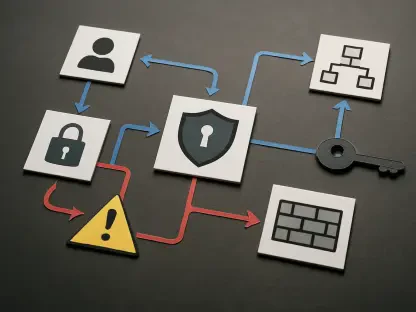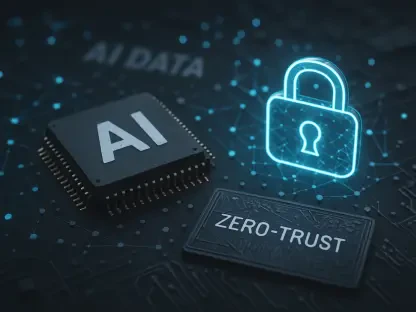In today’s rapidly evolving digital landscape, innovative approaches in the blockchain space are offering transformative solutions to real-world issues. This article delves into three groundbreaking projects: Qubetics Wallet, Theta, and Internet Computer (ICP), each addressing distinct challenges through decentralization.
Qubetics Wallet: Virtual Card Functionality Revolutionizing Crypto Security
Enhanced Security and User Control
Qubetics has introduced a non-custodial, multi-chain wallet, providing users with complete control over their digital assets. Unlike traditional wallets that rely on third-party oversight—vulnerable to hacks and mismanagement—Qubetics ensures that users themselves hold the keys to their fortunes. This approach not only enhances security but also empowers users with unparalleled autonomy in managing their assets.
With the increasing number of cybersecurity threats, users are becoming more concerned about who holds control over their digital wealth. Qubetics addresses this by offering a solution where the user’s private keys remain in their hands, thus limiting exposure to third-party vulnerabilities. By eliminating the need for intermediaries, Qubetics simplifies the security architecture, reducing potential points of failure. This security-centric approach aligns with the broader push towards greater digital independence and decentralization in the financial world.
Virtual Card: A Secure Shopping Experience
The standout feature of the Qubetics Wallet is its virtual card functionality. Users can generate secure, temporary virtual cards for online purchases directly from their wallets. These cards can be used for any online transactions that accept digital card payments, enhancing security while providing a seamless, convenient shopping experience for cryptocurrency holders.
This temporary nature of virtual cards significantly reduces the risk of exposing sensitive information during online transactions. Each virtual card is unique and can be set to expire after a specific period or after a certain number of uses, making it difficult for cybercriminals to exploit. The convenience of generating these cards directly within the wallet means users can quickly adapt to different online shopping environments without compromising their security. Additionally, the integration of virtual cards into the Qubetics Wallet marks a significant advancement in the usability of digital assets, bridging the gap between cryptocurrencies and everyday transactions.
Investor Confidence and Market Potential
Currently in the fifth stage of its $TICS token presale, Qubetics shows significant market promise. Priced at $0.015972, the token has sparked investor interest, with projections suggesting it could climb to $10 post-launch. With $1.35 million already accumulated, this reflects robust investor confidence and positions Qubetics as a formidable player in the crypto space.
Investor confidence in Qubetics is fueled by the growing demand for enhanced security measures in the cryptocurrency market. The projected growth in the token’s value highlights the market’s optimism about Qubetics’ ability to deliver on its promises. The funds raised during the presale are not only indicative of financial backing but also reflect the community’s belief in the project’s long-term vision. As Qubetics continues to develop and refine its offerings, it is well-positioned to attract further investments and expand its user base, reinforcing its status as a key innovator in the blockchain industry.
Theta: Decentralizing Video Streaming for Enhanced Quality and Lower Costs
Addressing Centralized Streaming Challenges
The video streaming industry is often hampered by centralized platforms that face bandwidth constraints, high operational costs, and insufficient content monetization for creators. Theta addresses these challenges by decentralizing streaming, allowing users to share bandwidth and computing resources on a peer-to-peer network. This not only improves streaming quality but also reduces costs, creating a more efficient system.
By leveraging blockchain technology, Theta enables a more resilient and scalable streaming infrastructure. The decentralized approach mitigates the single points of failure common in centralized systems, ensuring that content delivery remains smooth and uninterrupted. For content creators, this model presents an opportunity to earn more from their work as the costs associated with traditional, centralized platforms are minimized. Theta’s peer-to-peer network democratizes streaming by redistributing bandwidth usage, making high-quality content accessible to a broader audience without the burden of excessive costs.
Strong Partnerships and Market Performance
Theta’s strategic collaborations with tech giants like Samsung and Google significantly boost its market profile. These partnerships validate Theta’s approach and enhance its credibility within the tech community. Though its native token, THETA, has experienced price volatility, trading around $0.70, its long-term potential remains strong, underpinned by its robust technology and expanding partner network.
These partnerships are crucial in providing Theta with the technological and financial resources needed to scale its operations and innovate further. Collaboration with industry leaders serves as a testament to Theta’s viability and the trust placed in its decentralized model. The volatility in THETA’s price does not overshadow the growing adoption and trust in its underlying technology. As Theta continues to add more partners and enhance its platform capabilities, it is poised to redefine the streaming landscape by offering superior service quality and cost-effectiveness.
A New Era in Video Streaming
The combination of Theta’s technological innovation and strategic partnerships marks the beginning of a new era in video streaming. By decentralizing the system, Theta empowers content creators and viewers alike, promising better monetization and a superior user experience. This approach sets a new benchmark for what decentralized networks can achieve in digital entertainment.
The decentralized model not only improves operational efficiency but also allows for more inclusive content creation and consumption. Content creators benefit from lower platform fees and greater control over their earnings, while viewers enjoy enhanced streaming quality and reduced buffering times. Theta’s model ensures that every participant in the network contributes to and benefits from the shared resources, creating a more balanced and sustainable ecosystem. As the platform continues to gain traction, it could serve as a blueprint for other industries looking to leverage blockchain technology for decentralized solutions.
Internet Computer (ICP): A New Paradigm in Internet Infrastructure
Decentralizing Web Services
Developed by the DFINITY Foundation, Internet Computer aims to revolutionize internet infrastructure by offering a decentralized platform for running applications, websites, and services on the blockchain. This stands as a robust alternative to traditional cloud services, often plagued by centralization, outages, and high costs. ICP’s model offers enhanced security and cost-effectiveness, driving a significant shift in how internet services are managed and delivered.
The decentralized infrastructure provided by ICP allows for greater resilience against outages and cyber-attacks, offering a more secure environment for web applications. By eliminating central points of control, it distributes the risk across a wider network, making it more difficult for malicious actors to disrupt services. This architecture not only lowers operational costs but also enhances the speed and efficiency of deploying and running web services. As the digital economy continues to grow, ICP’s decentralized model could become integral to supporting scalable, secure, and cost-effective web infrastructure.
Market Challenges and Developer Interest
ICP’s journey has been tumultuous, with its token value plummeting from over $700 to roughly $3.30. However, despite these financial fluctuations, ICP continues to expand its ecosystem and attract considerable developer interest. These technological advances highlight its potential to redefine internet functionality, despite market volatility.
The decline in ICP’s token value reflects the market’s initial overestimation and subsequent correction, yet the project’s foundational technology remains robust. The increasing developer interest is a testament to the platform’s capabilities and future potential. As more developers start building on ICP, its ecosystem will likely expand, bringing in new applications that leverage its decentralized infrastructure. This growth, in turn, can help stabilize token value and increase adoption among users seeking reliable alternatives to traditional web services.
Transformative Potential of Decentralized Internet
The overarching vision of ICP is to create a decentralized web that mitigates the risks associated with centralized cloud computing. With its growing array of applications and services, ICP is paving the way for a more secure, efficient, and user-centric internet. This transformation holds promise for various sectors, from IT services to everyday web applications.
By decentralizing the internet, ICP aims to restore user control over their data and eliminate the monopolistic control of traditional cloud service providers. This shift could lead to a more democratized digital environment where privacy and security are prioritized. As the technology matures and more applications are developed, ICP’s decentralized web could inspire new innovations that further enhance online experiences. In this new paradigm, users will benefit from increased transparency, lower costs, and greater security, reshaping the future of internet services.
Common Themes and Key Points
The Push for Decentralization
Across projects, a recurring theme is the push for decentralization—addressing security concerns, reducing costs, and enhancing functionality. Blockchain technology is leveraged to disrupt traditional systems: Qubetics offers secure and controlled crypto transactions; Theta decentralizes streaming to improve quality and cost efficiency; and ICP reimagines internet infrastructure for greater security and cost savings.
The movement towards decentralization reflects a broader shift in the digital landscape, aiming to empower users and reduce dependency on centralized entities. Each project illustrates how blockchain can be applied to solve specific challenges in different sectors, showcasing the versatility and transformative potential of this technology. These innovations not only address immediate issues but also set the stage for more sustainable, secure, and user-friendly digital solutions. As decentralized models continue to gain traction, they could redefine industry standards and usher in a new era of technological advancement.
Investor Interest and Adoption Challenges
In today’s fast-paced digital world, the blockchain sector is advancing with fresh, innovative approaches that provide groundbreaking solutions to real-life problems. This article explores three pioneering projects that harness the power of decentralization to tackle unique challenges: Qubetics Wallet, Theta, and Internet Computer (ICP).
Qubetics Wallet is redefining how we manage digital assets, offering a secure and user-friendly platform that ensures both safety and ease of use for everyday users. It’s not just about storing cryptocurrencies; it’s about creating a seamless experience where users can transact and manage their finances effortlessly.
Theta is revolutionizing the way we consume video content, addressing issues like latency and high costs with a decentralized streaming network. By leveraging blockchain technology, Theta allows users to share bandwidth and resources, creating a more efficient and cost-effective streaming solution.
Internet Computer (ICP) aims to expand the internet’s functionality by allowing developers to build websites, apps, and other internet services on decentralized platforms. This enhances security and reduces reliance on traditional server farms, promising a more open and efficient internet.
Together, these three projects illustrate how decentralization can solve diverse challenges, pushing the boundaries of what blockchain technology can achieve in our daily lives.









